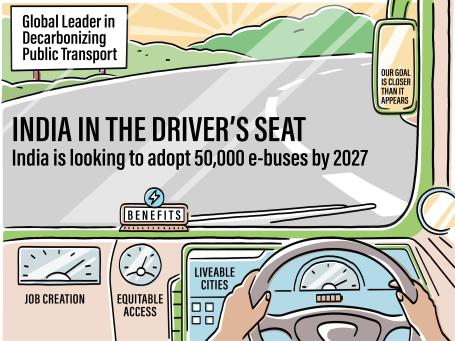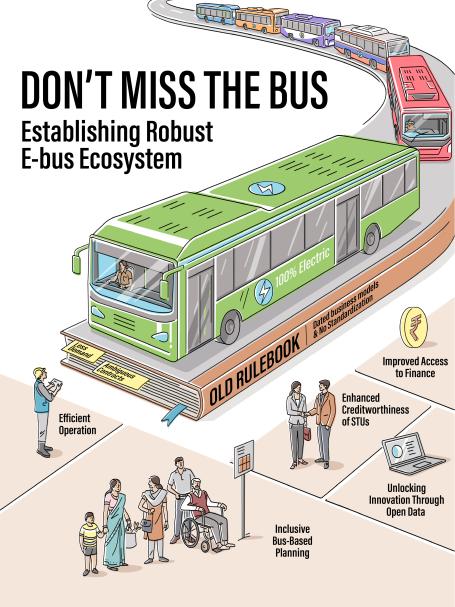
Reimagining India's Public Transport With Scale-up of Electric Buses
The transport sector is the third highest CO2 emitting sector in India with road transport accounting for about 90% of these emissions. Nearly 70% of India’s diesel consumption comes from the transport sector – with buses accounting for a ~9.5% share.
By 2050, 70% of Indians are expected to live in urban areas. Providing safe, accessible and low emission public transport is crucial to meet increasing travel demands. Accelerated transition to electric buses is one of the key strategies India has adopted to decarbonize the sector. In 2022, Government of India committed to deploy 50,000 electric buses through National Electric Bus Program. Over the past decade, WRI India has worked extensively with the national and sub-national governments to support this ambition and enable a nationwide scale-up in the adoption of electric buses, including in Tier 2 and 3 cities that are developing rapidly. We also supported CESL in the biggest ever demand aggregation for e-buses through the Grand Challenge for the deployment of 5,450 e-buses across India.

WRI India has supported the Ministry of Housing and Urban Affairs (MoHUA) through evidence-based research to develop the pivotal PM eBus Sewa Scheme that was launched in August 2023 to deploy 10,000 e-buses across 169 cities. We supported the policy development, framework for scheme rollout, and conceptualization of a National Intelligent Transport Management System (ITMS) platform. Our aim was to formulate the scheme while achieving the larger outcome of establishing sustainable public transport practices, serving the underserved, planning inclusive and decarbonized transport, adequate and equitable allocation of funds to cities as well as technology transition. We are also working with cities to ensure robust participation and e-bus adoption under the scheme.
We are working towards enabling a systemic transformation of the e-bus landscape through capacity building and co-creating solutions for the ecosystem that leverage innovative financing models and technological advancements.

RESOURCES:
- Open E-Bus Blueprint
- Assessing Financing Challenges for Implementing the Large-scale Electric Bus Program in India
- Viable Financing Pathways for Electrifying India’s Public Transport
- Rolling out Electric Buses


